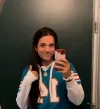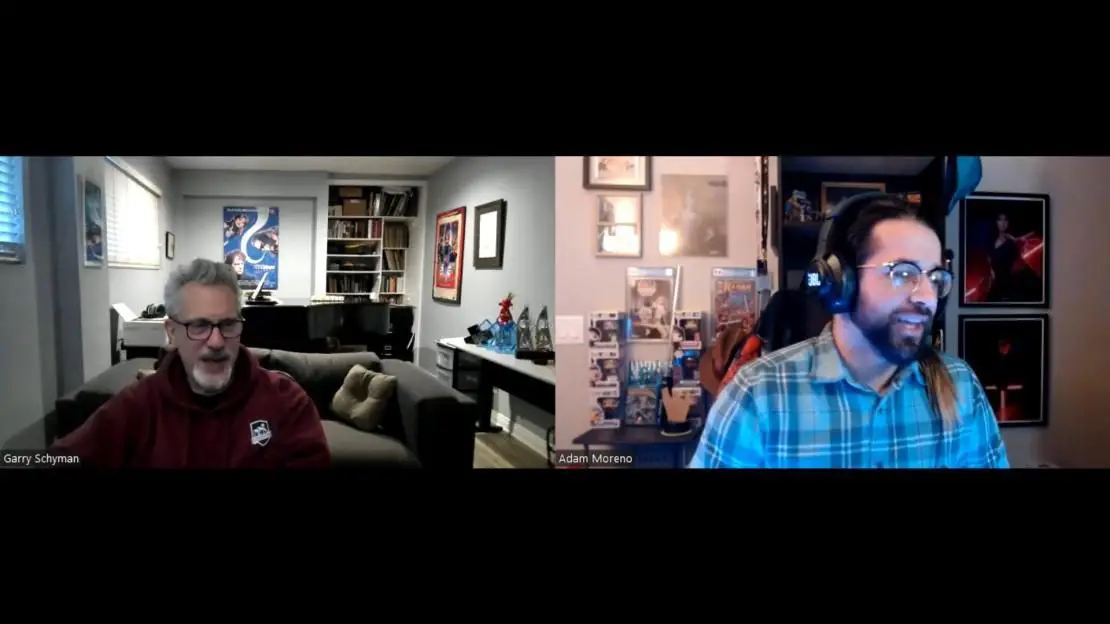
We had the privilege of speaking to one of gaming’s greats in music. Garry Schyman was one of the most interesting people I’ve had the pleasure to speak to, and I’m sure you’ll be able to see that in the interview! Without further ado…
Adam Moreno: Guys, we are so honored to have the wonderful composer Garry Schyman here with us today. You guys probably know him from his work with Bioshock, and I know him from Dante’s Inferno. We also got Shadow of Mordor, Shadow of War; all great games, all wonderful music. Gary, how are you doing today?
Garry Schyman: I’m doing good Adam, thanks for inviting me on!
Adam Moreno: I appreciate you being here. We’ve got a few questions for you. We’re ready to jump in, you ready?
Garry Schyman: I’m ready, go for it.
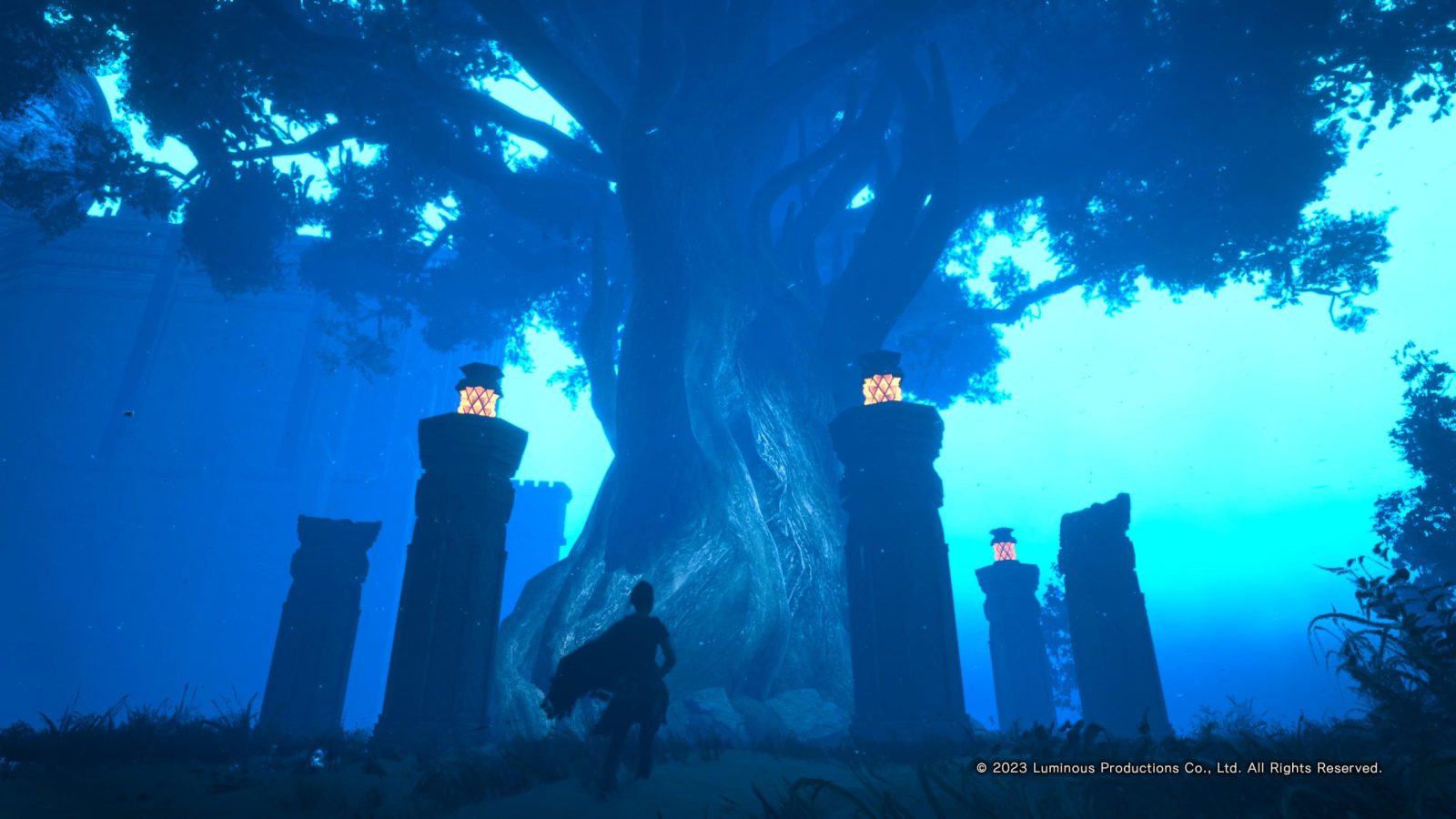
Adam Moreno: OK, when composing for video games, do they show you storyboards? Early animations? What do you build your music around, or do you kind of wait until the product is more in the complete stages before you start putting your job into it?
Garry Schyman: Well, it depends, and it can vary based upon the project, so you start when they want you to start and they’re ready for you to start music. From their perspective, the developer, that’s the developer obviously. So yeah, often the first thing you see is artwork. You know, that’s like almost typically the first thing you’ll see, or any gameplay that they’re able to share with you. The gameplay is dependent upon how advanced the game is so that they have something they can actually show you. Usually there is. There’s something that’s working and they’ve got to build.
A build is a working version of the game, and someone at the studio almost always (I live in Los Angeles), but almost always I’m working with folks that are in all over the world, and Square [Square Enix], this was Luminous [Productions] Games, which is part of Square. They’re in Tokyo, so I’m working with folks all over the world, and almost rarely in Los Angeles. And of course, this was during COVID when we first started, so they’re sharing with you whatever they have, like a script, because this is a very story-oriented game [Forspoken]. It has a really interesting and emotional story associated with it, so that’s something they share with you, and then whatever they have to inspire you when they want you to write something. Usually, they will provide gameplay capture. Some will play the game in the studio because not always, but most of the time they don’t want to let this working version of the game out of the studio.
So, because they’re, you know, afraid I’m gonna share it online, which I’m not, and you sign non-disclosure agreements, but in any event somebody plays the game at the studio and they send the gameplay and then they’ll give you some input about what’s going on there. What the music should represent, how the music should feel. The hardest part is at the beginning, when you’re developing the style, and you’ve got to come up with themes that work. But once you’ve done that then it becomes like okay, next, here’s this cue, write this. [And they reply] Yeah, we like that, next. So yeah, the first things you get is artwork and any gameplay opportunities that exist. Sometimes they’ve actually taken the time to develop some CGI video because they’re doing some kind of promo. But you know it varies quite a bit from game to game.
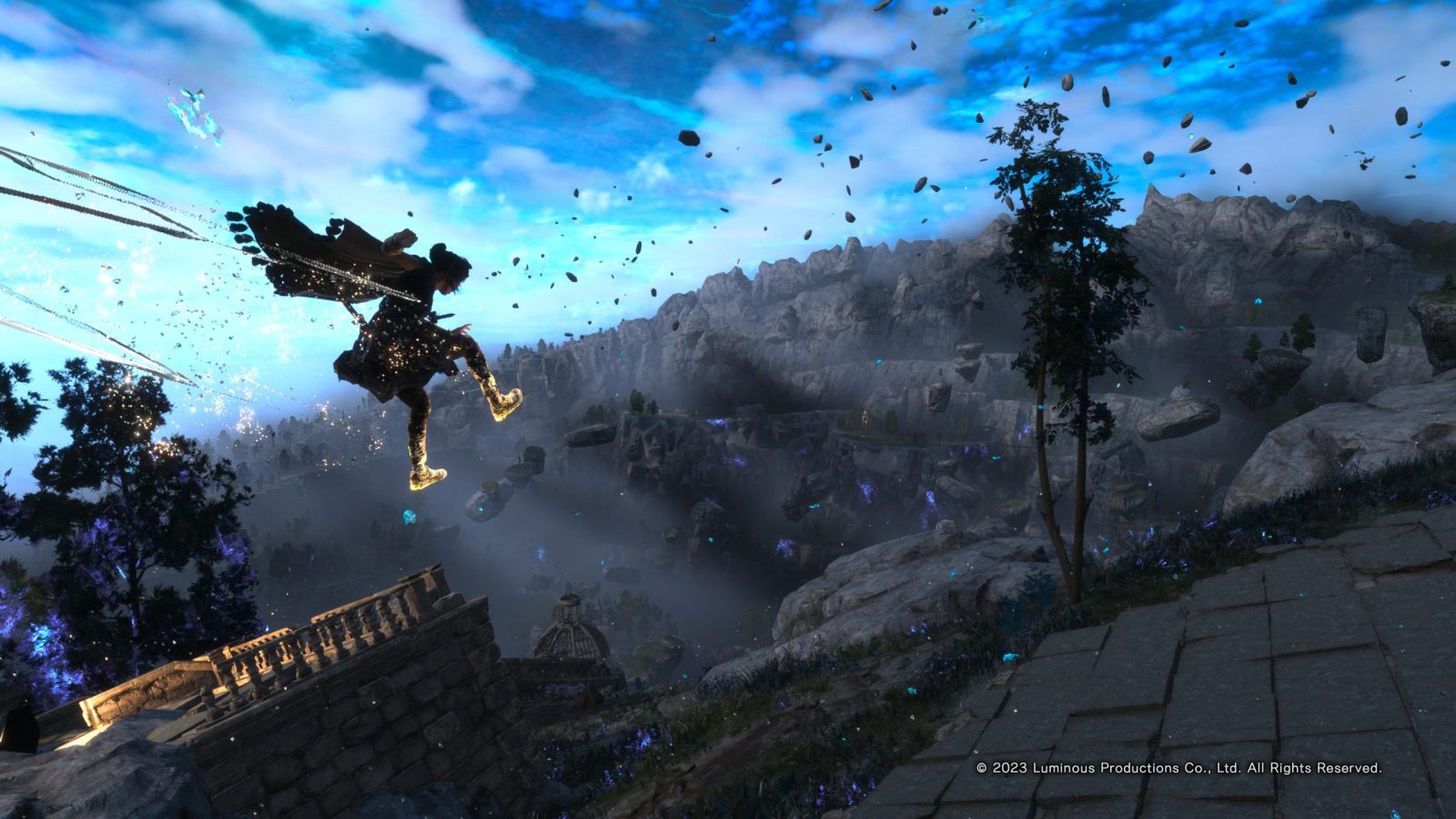
Adam Moreno: That’s wonderful and a great answer. Forspoken is why we’re here talking to you today, it’s your latest thing you got going on. Something that I noticed; you really know how to push a player forward using music. Whether it be with the violin runs, you’ve got the percussion builds, horn blares, there’s something special about a song that can make a player want to completely forego the pretense of dilly dallying and make them want to push forward with the story and move them forward in the situation. With a name like Unwavering Resolve, which is from the Forspoken OST, I should have expected that kind of situation. Is there a change in mindset when you’re thinking that your music not only has to fit the story, but has to make the player connect and move forward? The music kind of pushing them that way.
Garry Schyman: Yes, of course, and that’s the assignment. You’re given some gameplay footage and then you have a discussion about what’s going on, what the player is going to be experiencing, what the main character Frey (who is almost always there) is experiencing. You know, the shock from going from New York City to this world of Athia, which is this fantasy world which is amazing and scary all the same.
So yeah, you’re just taking all that into mind and you’re like, okay, let’s write some music. It’s always intimidating when you first start a cue, but you have opportunities if they don’t like it or if it’s not working. They test the music in-game, so that usually there’s some kind of a build [that they test it with]. A build is a working version of the game in progress. So, they have a build, and you’ll write some music, and they may go, this sounds really good, but let’s drop it into the game and see, and they’ll test it. And [sometimes] it’s like, yeah, that’s wonderful, or yeah, it’s not quite driving that. So you get that feedback.
In a film, if you’re scoring a film or television the feedback is the footage you have, but it’s not quite the same as video game footage. Well, to some extent, you may write a piece of music that fits a scene in a film, but it also has to fit an arching storyline, so it’s it is not in isolation, but of course, the same thing is true of gameplay music. There’s like, I think, nearly an hour of cutscenes and cinematics that I scored, so there’s also a lot of that as well, but the majority of music I wrote is gameplay music. You’re trying stuff, you’re experimenting.
Once you sort of grasp the style that they’re really loving and that I’m feeling really good about, then it goes smoothly, and it went pretty smoothly. Which is lucky for me because there was two and a half hours of music that I wrote. If I was struggling with every cue and getting lots of stuff sent back like, “Can you redo this?” that would be particularly painful, but it didn’t. It went really well, and once the style was established it went beautifully well. It was really a pleasure to work on, and the game was inspirational. The game was cool, and that means a lot to have something that inspires you.
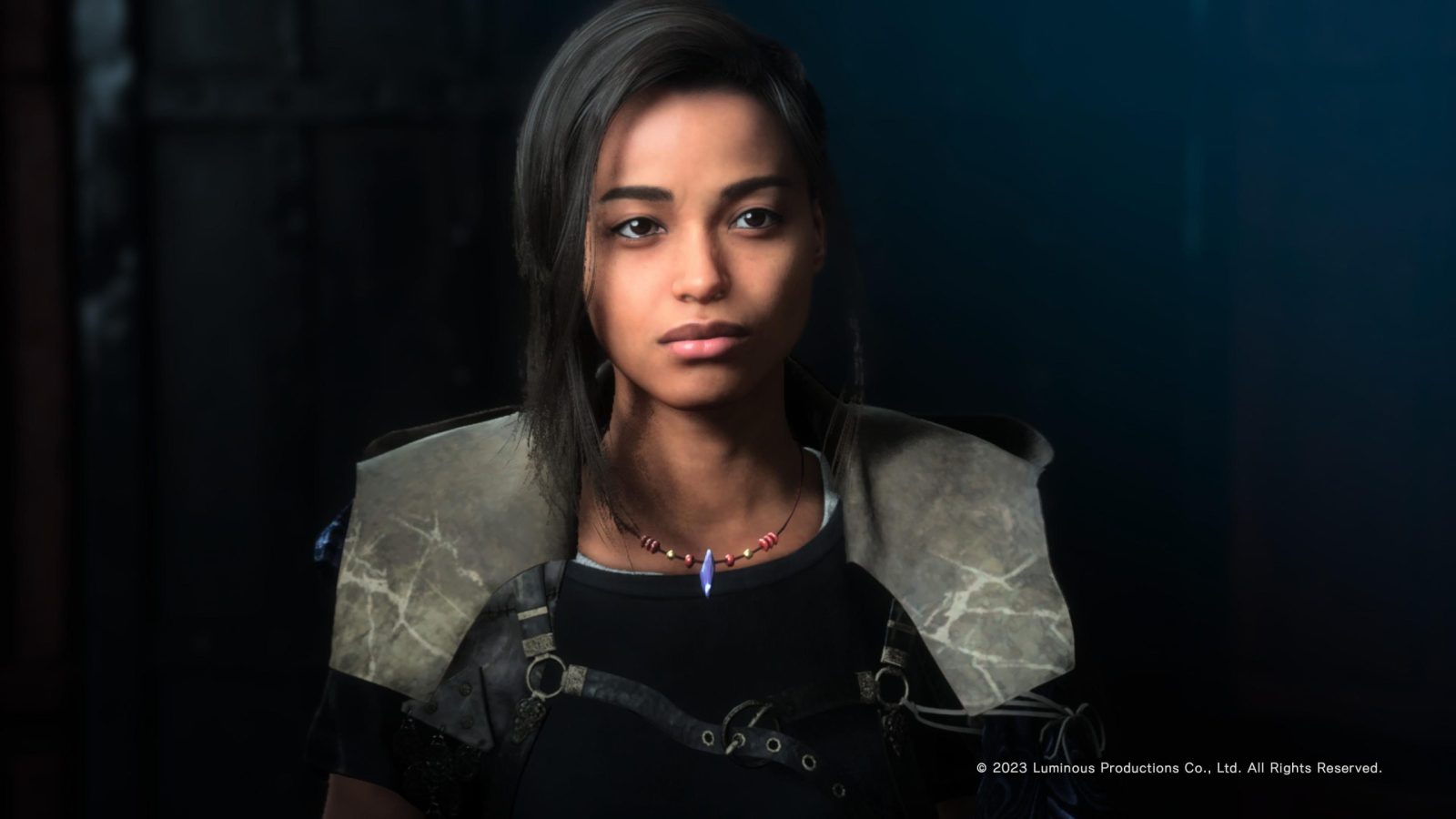
Adam Moreno: That’s very exciting. I’ve not played the game yet, sadly, but I’m hearing some good things about it, and it looked fantastic when we saw the trailers for it. So I’m very excited and the music has just gotten me so much more excited to play this. Taking a step back and revisiting some of your greatest hits, this is actually a question from our Lead Editor David. He said, “The Main Title and Cohen’s Masterpiece from Bioshock 1 are two of my favorite video game pieces”, and that’s of all time for him. That’s not just like-
Garry Schyman: Oh wow.
Adam Moreno: -You know video game music. That’s all time for him. His question is, “they’re both very different. Can you explain the inspiration behind these two unique compositions at all for us”?
Garry Schyman: So, The Main Title for Bioshock 1 and then Cohen’s Masterpiece? What they call it. I didn’t call it that.
Adam Moreno: Oh okay!
Garry Schyman: And by the way, just a little aside for anybody listening who’s not familiar with game music. Very often the track names that you end up with as part of the soundtrack was not anything you had any idea of when you were writing the music.
Adam Moreno: Oh okay, I didn’t know that.
Garry Schyman: Very often you just have no clue because that’s somebody in PR at the company going, “Let’s name it this”. It may have quite a technical name like whatever the level is and what [the character] is doing which is functionally useful when they’re dropping into the game, but it’s not particularly interesting. So, I did not write the cue and call it “Cohen’s Masterpiece”. Alright, so they were very different, they were functioning very differently in Bioshock.
The theme, of course, is what you hear [in the] start-up music or you know, and when you’re in a sort of hold mode, and maybe in the end credits or whatever, and that was thematic. I used the theme throughout the game. Cohen’s Masterpiece was very specific. When you enter the level of the game where Sandra Cohen is sort of the predominant boss of that level, the entertainment part of Rapture. You know, where they have theaters and whatever, and so he’s like the creative master and psychopath of that level and he’s the boss. And then direction-wise you enter this world and you go into a theater, and you hear some music, and Sandra Cohen is sitting in the theater by himself, and on stage there’s a pianist and he’s playing some of Cohen’s music. He’s [Cohen] being a critic of the pianist, and the pianist is chained to the piano so he’s stuck there. Eventually Sandra Cohen is so unhappy with the performance that he blows them up, which you know some composers fantasize about blowing up pianists or not, you know, playing your music properly.
In any event, that’s what they needed this music for. And I remember, I did one cue, solo piano cue, and they weren’t that happy with it. And then I got it, and the idea was, in my mind as a person who has studied classical music quite extensively and played the piano my whole life, maybe Sandra Cohen is sort of like Sergei Rachmaninoff. If anybody’s familiar with classical music, Rachmaninoff was writing romantic music well into the 20th century, when the styles had changed. He was still sort of harking back to the old stuff, so what if I wrote something kind of [like Rachmaninoff] in 1960 when the game takes place? What if I was thinking he was like Rachmaninoff-ish and kind of writing this sort of romantic classical music? They loved that. Then they loved it so much that they ended up using it as background during much of your travels through that level. So that music was unique and it was meant to be this very specific, what we would call in film music source music.
In other words, the source music is music that’s actually occurring in the world. Scoring is music like if you hear an orchestral score in Star Wars by John Williams, there’s no orchestra in space. So that’s just coming from the ether and it’s creating mood, etc. But the source music is something that you see on screen, in the game. This was source music they really loved enough to use it as score as well, so hopefully that explains how they both got there.
Adam Moreno: That’s such a cool thing, and the fact that you remember specifically what it is, it’s just very impressive to me. It’s been a while since that game came out and it was almost like you were right there yesterday and were telling me a story about it. So, getting back to Forspoken, from the sample that we got of the original soundtrack; because they changed the name of it you may not recognize it, but Vagabond-
Garry Schyman: Yeah, actually Vagabond was the name we used. So, you chose one of the few.
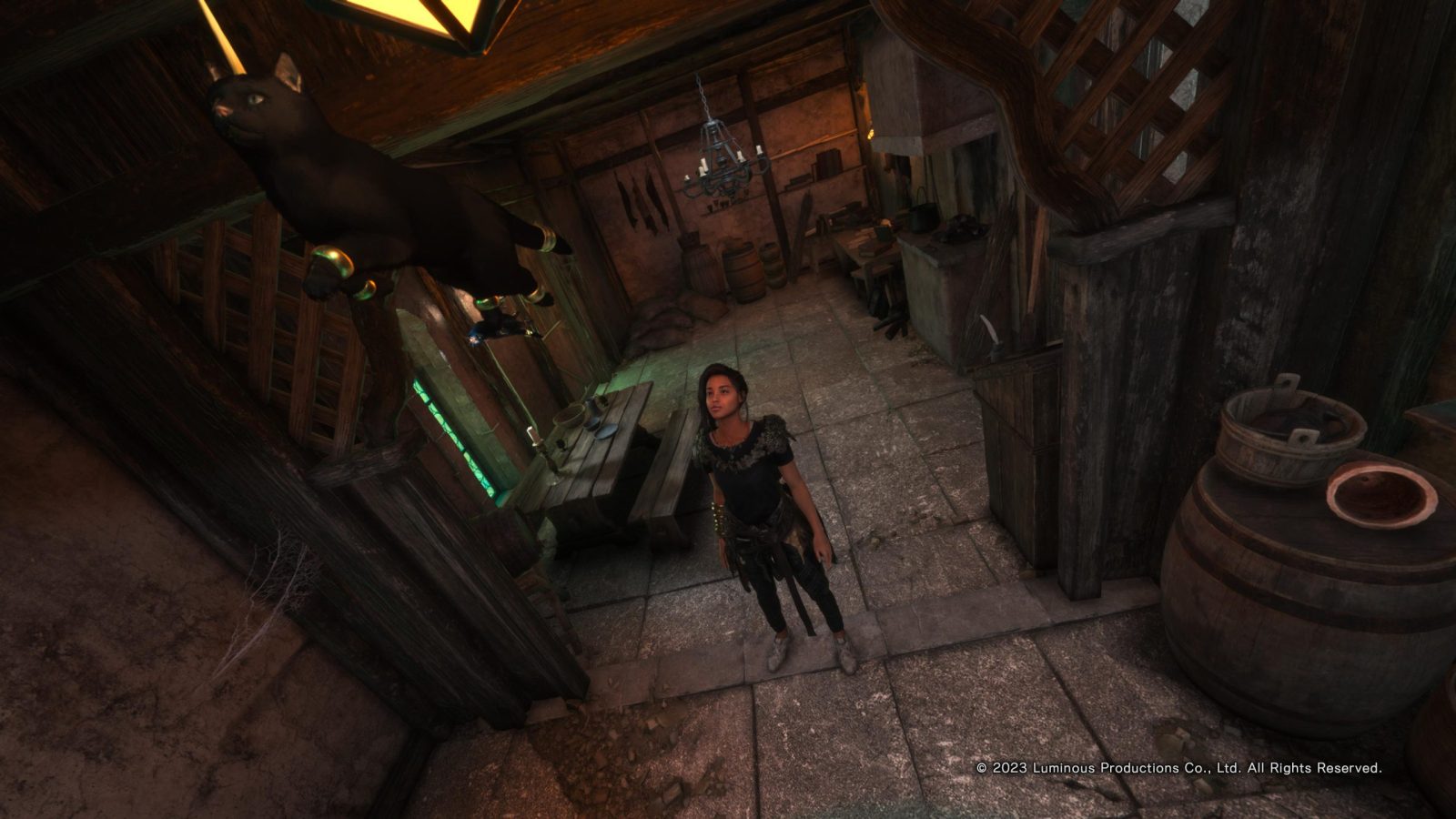
Adam Moreno: I chose one of the few, but it happens to be my favorite so far. The intricate cello runs at the very end and the wonderful vocals pushing it all the way to the end captured my imagination and honestly just kept me leaning forward in my chair. I was using it in my morning routine. I was playing this music trying to see what I really liked about it, but what was your, if you are allowed to tell us, what was your favorite song that you wrote for the album so far?
Garry Schyman: Oh gosh, favorite. I don’t know if I have a favorite.
Adam Moreno: It’s hard. It’s like choosing which of your children is the favorite.
Garry Schyman: Which are your favorite children? I can do that though, I only have one child, a son, so I can actually do that.
Adam Moreno: You can.
Garry Schyman: If I had more than one I wouldn’t want to do that. So no, I don’t. I don’t necessarily.
I’ll tell you the cues that I chose were some of the ones that I just thought were very evocative. Vagabond does have this really lovely solo by India Carney, who’s the singer, who just really represents Frey in a sense and she did this lovely performance which we recorded here in Los Angeles. She lives here in LA and that was wonderful to bring her in. I had already recorded the orchestra and the choir, and then we brought her in just to do her solos over this pre-recorded track so that she could be inspired by it too. And you know, I’ve written out parts for her and then gave her opportunities to improvise.
I can’t remember whether Vagabond has any in-props on it. Some of the cues do where she improvised. Some of them don’t that she sang on, so I’d have to listen to that track again to remind myself. But she was amazing. I love recording. The writing part is the hard part.
When you are writing music it’s hard work, and it’s inspiring when you come up with something when you’re looking at that blank page or the blank software that you’re writing the music in. That can be a struggle, but once you’ve written the music and everybody’s on board and happy, we do mockups of the music. We call them music cues, by the way, because songs would be something with [vocals]. Well, I guess you could say they’re a song because they have vocals, but we generally call the music cues in the business. So, once they’re all on board and everybody’s happy with it, now it’s just like, “how do we make it sound even better”? I have these mockups and samples that are really great these days, but an orchestra is like awesome and they’re expensive, but we had the budget to record-
Adam Moreno: It’s worth it.
Garry Schyman: -I recorded a week with the orchestra which was so cool to have that much time. There’s two and a half hours of music, so we needed the time to pull it off. Then the choir was recorded here in Los Angeles, and then of course bringing in India to do solos in a smaller studio.
Adam Moreno: Her voice is magnificent.
Garry Schyman: Yeah, that’s the fun part. When you’re just recording with live instruments, the hard work is done. I enjoy conducting. It’s really great to conduct an orchestra playing your music and you hear it, and you go “Wow, who wrote this? This sounds really good”. There are composers that hire people to write music, sometimes you’ll see a name associated with it who had very little to do with the actual music that was written. Someone once said to me, an engineer that I work with, that the difference between film music and game music is that game composers actually write their own. Which is a little bit of a cut. In no way is that true of all film scores. Just many film scores. But I was just talking to one of my former students and he had written half of a score and another other composer had written the other and then the [featured] composer who was getting the credit for it had written none of the score. I won’t say which and I won’t say who.
Adam Moreno: Yeah, don’t want to throw anybody under the bus.
Garry Schyman: No, I’m not throwing anybody under the bus. It does happen. But you know, I wrote every note of the music and that is the hard part, right? The music is the hard part, getting improved. There are moments of real exhilaration when you write music and you go, “Wow, that’s really good”. I’m really happy with this and then you send it to them and they’re like, “yeah, that’s beautiful. We love that”.
Adam Moreno: You’re your harshest critic.
Garry Schyman: Yeah yeah, I am.
Adam Moreno: If you like it, then-
Garry Schyman: So, if I feel good about it… but that’s not always true. Look, a lot of music that composers for film, TV, and games, we write it and then they go, “okay, that’s not quite right”, and you get feedback and then you rework it. This happens a lot, that’s the process. But, once you find the style and once Bear [McCreary] and I, who’s also co-composer and a good friend of mine, once we found the style, it went very smoothly.
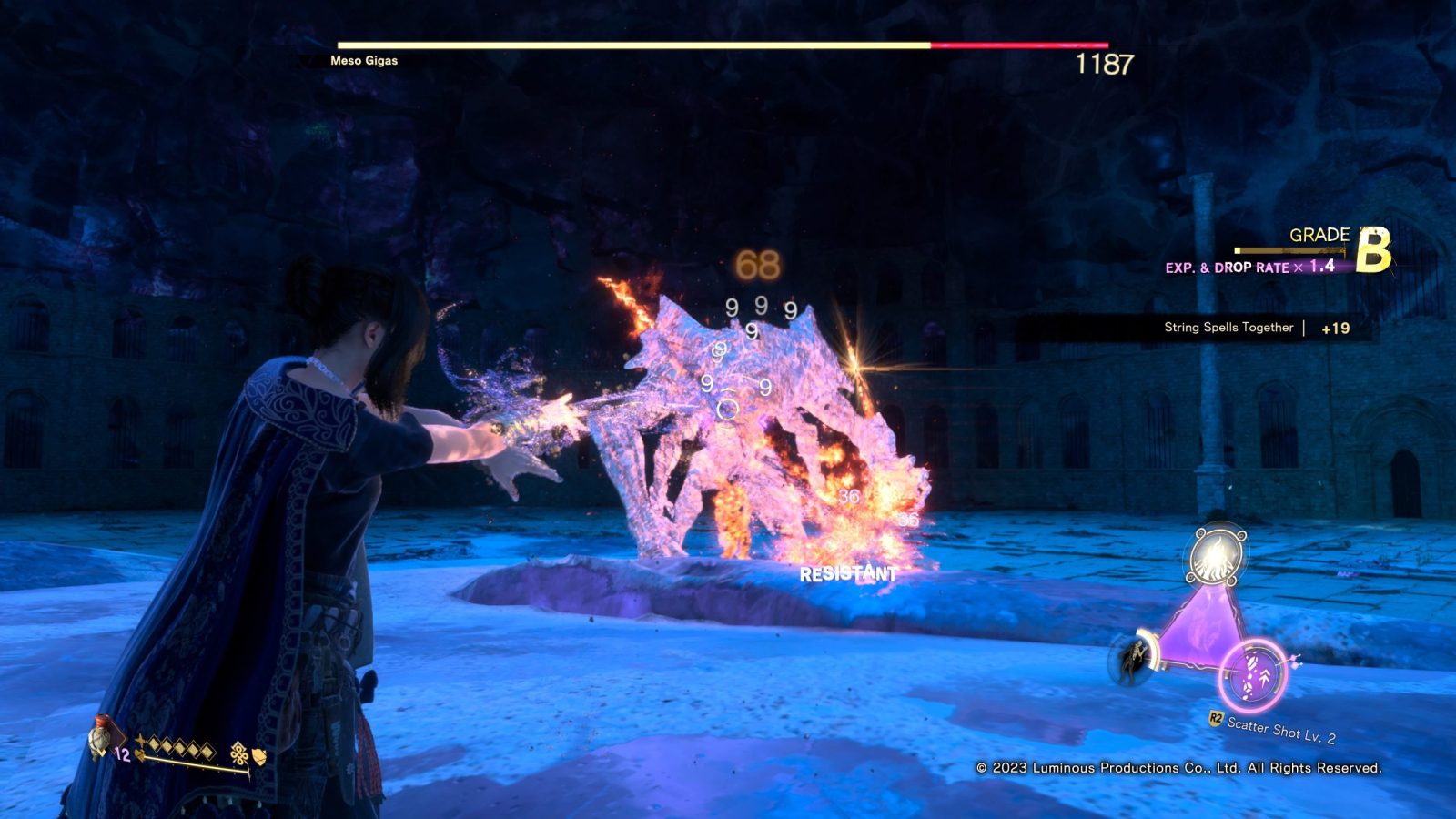
Forspoken_20230116101543
Adam Moreno: That’s wonderful. We’ve got just one more question for you. You’ve been part of some of gaming’s greats, including Bioshock like we talked about, the Middle-Earth series, Dante’s Inferno, and more. Looking back, can you tell us just a moment that you have, a memorable moment in your video game career, due to your composition? Anything that’s a memory that sticks with you of your time doing video game music.
Garry Schyman: Well, I do remember at a live performance in San Francisco at the JDC, and they just played some of my music and they called me out onto the stage, and I was getting like this amazing standing ovation. I felt like a rock star for a few moments there. That was really a beautiful moment where I went, “Wow, people really love my music. I mean, that was wonderful getting that kind of a reaction. Composers, we live lonely lives. We are by ourselves most of the time writing music. So, one of the cool things about recording with orchestras, you get out into the world, and you have musicians surrounding you and they’re doing their best to bring your music to life, so that’s really a lovely moment as well.
So, this is not a moment but the week recording the music for Forspoken, which was in Nashville, I was like on a high that week. I don’t think I had a bad moment. Even the Nashville chicken was like amazing.
Adam Moreno: I’m from Tennessee. I used to live near Nashville, so I completely understand what you’re talking about.
Garry Schyman: Well, you know if you like spicy food, of course. So it was that that was a fantastic week recording the music. I do love recording, so I’ve had many experiences. Like recording Dante’s Inferno, in London with the Philharmonia Orchestra. I remember the first cue at Abbey Road. I’m at this famous iconic studio getting up and lifting my baton and then we’re rehearsing the first cue. I had some really difficult horn parts, and I had eight French horns and often French horns are touchy you know, they chip notes. And these guys, we’re like, “holy crap, this is amazing”, it just sounded spectacular. [It was] the first take and I was saying, “wow, this is gonna be a fun one”. That was a week too.
Adam Moreno: I’m so excited, I’m gonna go back and and try to find what you’re talking about. Do you remember which song it was?
Garry Schyman: Ooo, I don’t. I don’t remember which cue that was-
Adam Moreno: I’ll have to dig.
Garry Schyman: But the horns were like, we had the four horns of the Philharmonia which is like a professional school. And then the first chair of like three or four other orchestras. So we had absolutely an uncompromisingly spectacular horn section, and they just nailed stuff. It was just, it was so much fun. And even at lunch, there’s a in House restaurant at Abbey Road, it’s kind of like a little cafeteria style restaurant. But they serve beer there, London Pride I remember. The brass were drinking at lunch and I’m going, “how’s that gonna affect them after lunch?”. But they continued to play well. The strings were not drinking at lunch, but the brass were.
We would have a London Pride at the end of the day, you know, so it’s like a reward. You know, we worked all day. Let’s have a beer, a cold one, and listen back to what we recorded that day. So that was fine. I could relax, but I’m not gonna drink during the day. Otherwise, I’m going to be not good, cause you gotta be really focused. Yeah gonna be pretty limp, yeah? So yeah, you wanna be focused. I mean one beer, doesn’t you know, knock you unconscious, but I’m not gonna drink beer.
In any event that was amazing, having spectacular musicians. Of course, LA has that. If you love writing music and you love recording with live musicians, it’s a great gig. It’s a great job. It really is.
Adam Moreno: Well, I appreciate you so much for taking time with us today. We’ve been speaking with Gary Schyman, currently working with Forspoken, but has done so many amazing things throughout his career so far. I can’t wait for everybody else to be able to hear this music, and I’m excited to hear the music in-game, so thank you so much for being a part of this today.
Garry Schyman: My pleasure Adam. Thanks for inviting me on.
